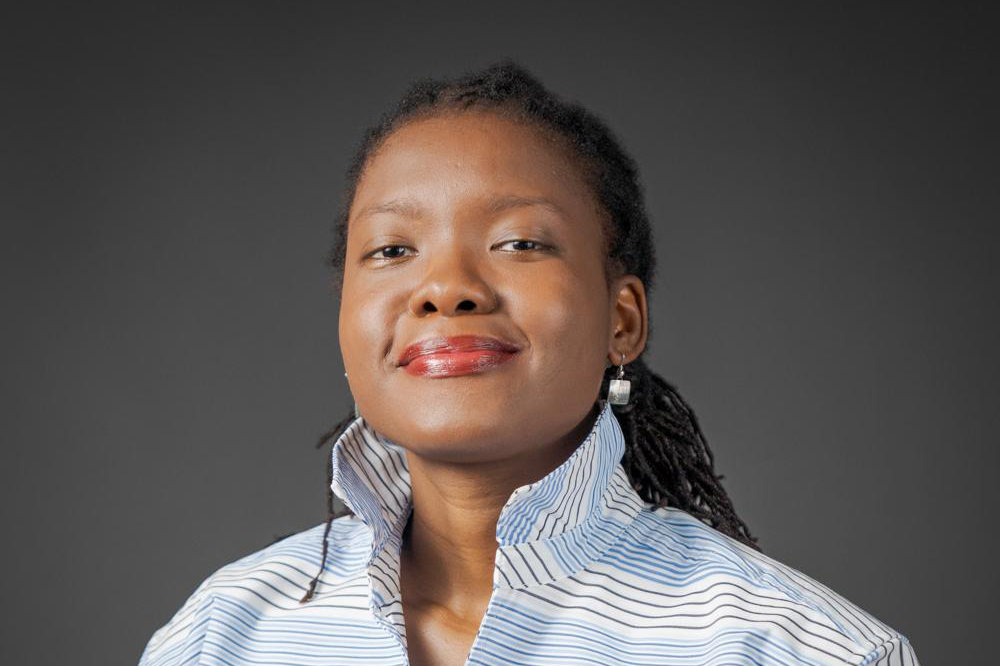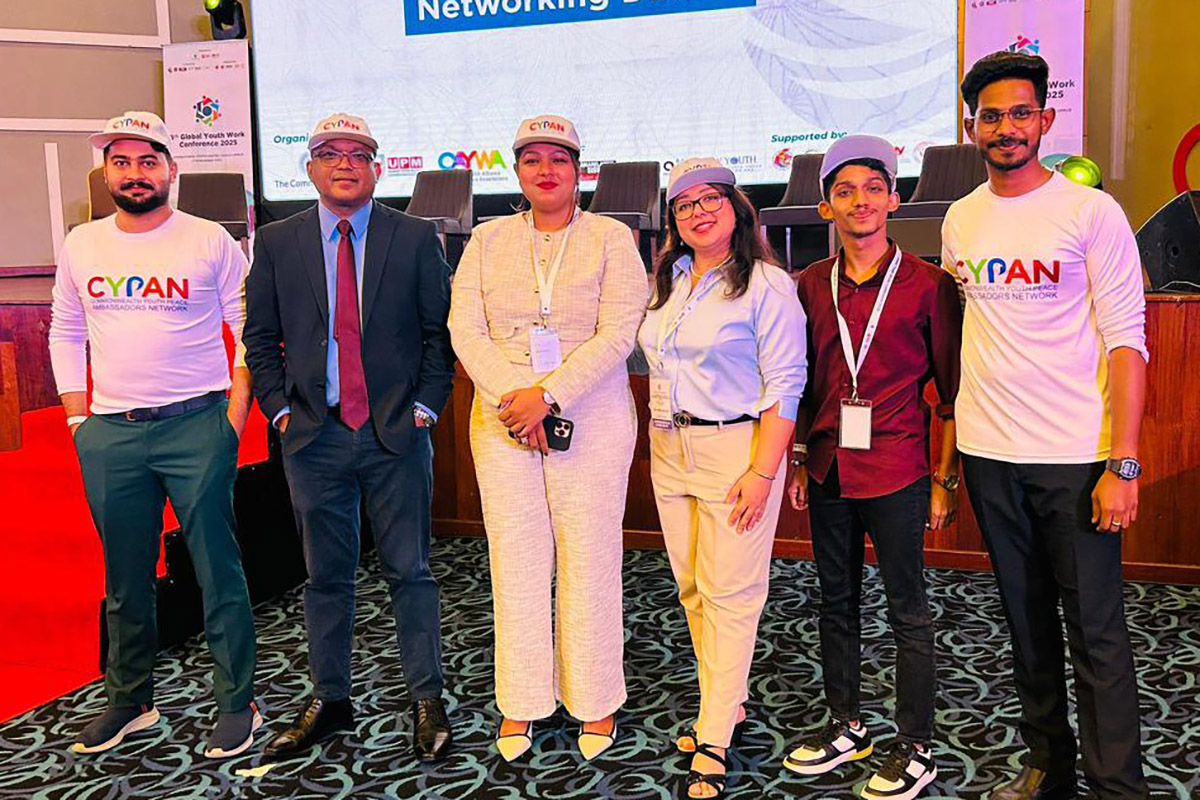A Very Disrespectful Farewell
May 25by Metolo Foyet
“After nearly eight (8) years of service as a Commonwealth Correspondent, I think it is time for me to pass the torch and create space for fresh voices and perspectives. This journey has been incredibly meaningful — from amplifying youth voices to exploring global issues through storytelling and adjusting to what AI would mean for journalism in the 21st century. I’ve grown immensely as a writer and advocate, and I remain deeply grateful for the support, camaraderie, and opportunities this platform has offered. Thank you for the unforgettable experience and for believing in the power of young people to shape the world.”
Such is the initial style in which I had planned to write this farewell, after informing the platform’s editor that I will be stepping down as Commonwealth Correspondent this month. But after going through the 24 pieces I had written prior to this—each one a snapshot of who I was then—to examine whether the person I am today still echoes the Me who once put those words to paper, it was part reckoning, part quiet conversation across time. In the process, I found myself reflecting on how much growth often stems from moments of discomfort. It made me consider the different forms discomfort can take—how it can arrive uninvited, often disguised as something socially constructed as negative, such as: disrespect.
What really is disrespect?
We have been socially conditioned to think of disrespect as lack of courtesy, but maybe disrespect is just deviation from what’s expected. Not necessarily unkind, just unscripted. And that can be jarring, especially in cultures where “politeness” is prized over honesty. What if our whole relationship to “disrespect” has been miswired? If someone doesn’t agree with us, or doesn’t follow our norms, it’s branded disrespect. But really, they might just be choosing honesty over performative politeness.
Often what we label as disrespect is just someone being brutally honest, stripping away the niceties or sugarcoating we’re used to. It’s not always about what is said, but how we receive it. Maybe our discomfort says more about our ego or unhealed wounds than about the other person’s intent. The sting often comes from our own sensitivities or expectations, not necessarily from the content of what’s said. It’s interesting how much tone, timing, and social context shape whether something feels like “frankness” or “disrespect.
Growth comes from moments of discomfort
Looking back on my journey as a Commonwealth Correspondent, I realise how much of my growth has come from exactly these moments—of discomfort, of confrontation with other worldviews, and of learning to sit with things that initially felt abrasive. Over the years, I’ve come to value not just the polished, inspiring moments, but also the raw, unfiltered ones—the editorial feedback that challenged me, the comments that pushed me to reconsider my stance, the cultural tensions that sharpened my awareness of nuance and voice. They weren’t always easy, but they were always real.
So, while my initial farewell draft tried to wrap this journey in neat, gracious terms—and all of that still holds true—I now see this departure as less of a polished goodbye and more of an honest closing of a chapter. One where I honor not only what I gave, but also everything I received: critique, care, contradiction, clarity. All of it shaped me. All of it mattered.
Rejection, discomfort, even disrespect, in their raw forms, are positive and embracing them is a crucial life skill. They often are signs of alignment, of clarity. They force decisions. They clear paths. They show you who’s really for you and what you’re truly about. Maybe being rejected—or rejecting something, a narrative, an opinion—isn’t about failure or offense. Maybe it’s just the universe editing your life with precision.
The Truth will set us Free
And to be totally frank with you, perhaps the only reason I’m writing this way is because I just finished reading The Subtle Art of Not Giving a Fck*, by Mark Manson. And if you ask me whether there’s a line between being frank and being intentionally hurtful? Or whether that line is just something society draws to keep conversations “polite”? Well—maybe that line isn’t fixed at all. Maybe it shifts depending on who’s speaking, who’s listening, and what truths are being protected or exposed.
We spend so much time trying not to offend that we often silence the very truths that could set us free. The cost of constant politeness is that sometimes, we lose ourselves in the performance. We trade clarity for comfort. And I suppose what I’ve learned over these years—through writing, through rejection, through discomfort—is that truth, even when sharp, is often the most generous thing we can offer.
Don’t be afraid to write what feels risky
So here’s to the uncomfortable truths, the unvarnished farewells, and the clarity that only comes when you stop trying to be liked by everyone:
To all the correspondents, current and to come, I say this: don’t be afraid to write what feels risky. Say the thing that trembles inside you. Trust that discomfort is part of the process, and that your voice—especially when it’s not polished, not perfect, not universally agreed upon—is still powerful. You’re not here to please everyone. You’re here to stir thought, to ask better questions, to reflect the world as you see it and feel it. May you remember that growth is rarely smooth, and the clearest paths often come with a few bumps along the way. But as you move forward, never forget: it’s the uncomfortable moments that will ultimately shape you into the writer, the advocate, the person you’re meant to be. Keep pushing boundaries, keep questioning norms, and above all, keep examining your own truth.
Write with your whole chest. Let your words carry your contradictions, your questions, your becoming. Embrace the challenges that will inevitably come your way. Let them carve new paths, force you to reconsider your stance, and remind you why you chose this journey in the first place. Don’t shy away from being frank, even when it’s uncomfortable. It is in those raw moments that you’ll find your voice, your purpose, and the courage to be truly honest in your work. And when you’re met with silence, resistance, or rejection—take a breath. Sometimes that’s the very proof that your words mattered.






